Hoof Falls & Foootfalls…where students learn more than “just horse skills”…
No matter the “type” of lesson the student may be technically enrolled in, not only are equine skills (grooming, leading, tacking, riding) practiced and honed but also personal/social and educational skills (critical thinking, problem solving, manners, team work, math, literacy, motor skills, spatial awareness and reasoning, etc.). We teach to the student and meet them where they are each and every lesson while also prioritizing safety and fun!
Lesson Availability as of September 2023
- Mounted lessons (traditional & adaptive): Waitlist
- Equine Assisted Learning (unmounted): Waitlist
- Unmounted Horsemanship Lessons: Waitlist
Contact Saebra.p@Hooffallsandfootfalls.com if you have questions about the lesson program and/or would like to be placed on a waitlist for open lesson positions.
2023-2034 Lesson Year begins the week of September 18th.
Saebra Pipoly– Lead Instructor- CHA-IRD: Master Instructor & Assistant Faculty for CHA-IRD. PATH Intl.: Advanced Therapeutic Riding Instructor, CTRI, ESMHL, Associate Faculty for CTRI.
Sophie Ranier- Assistant Instructor– PATH Intl. ESMHL
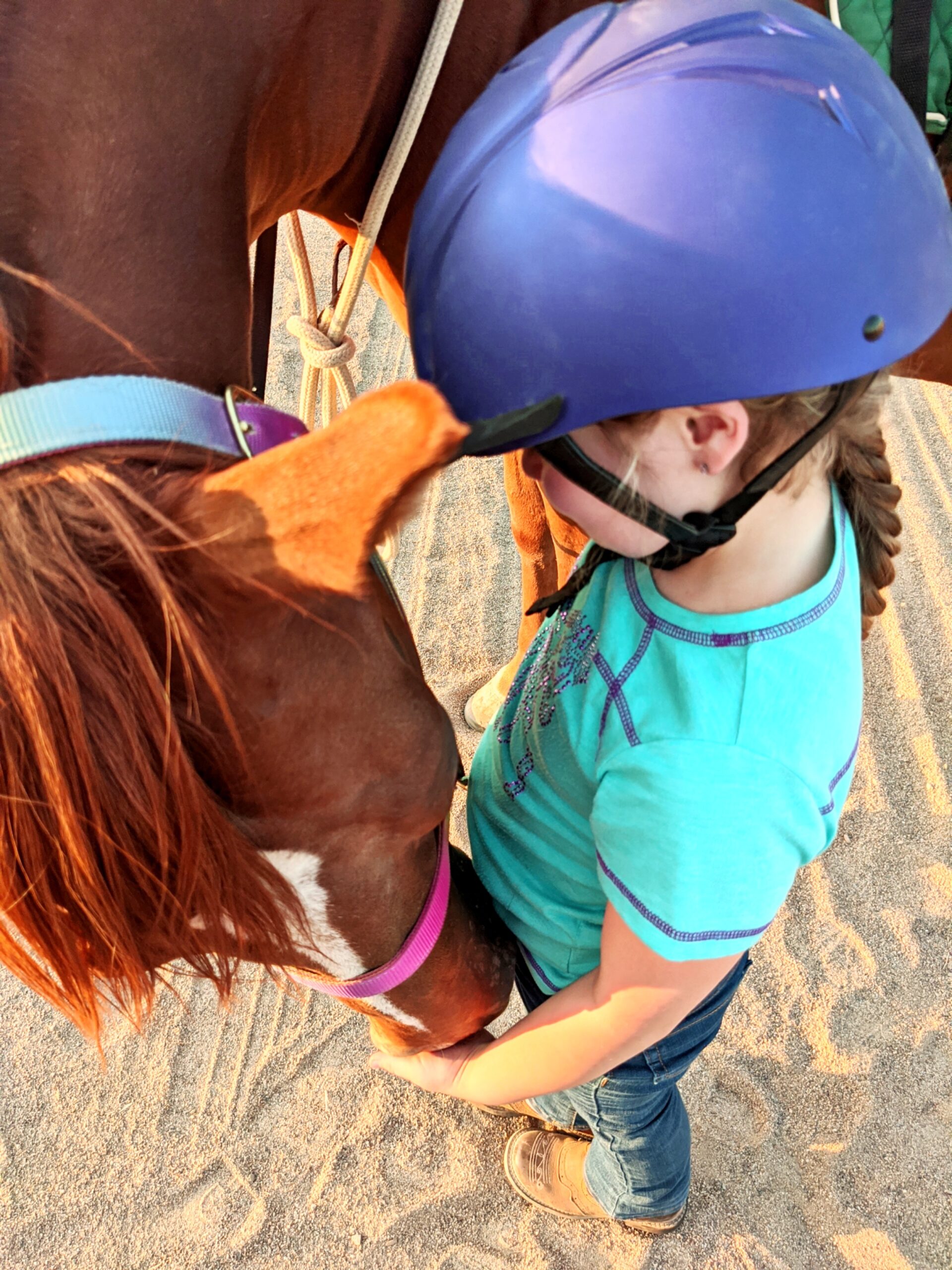
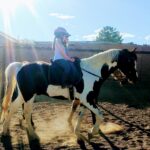
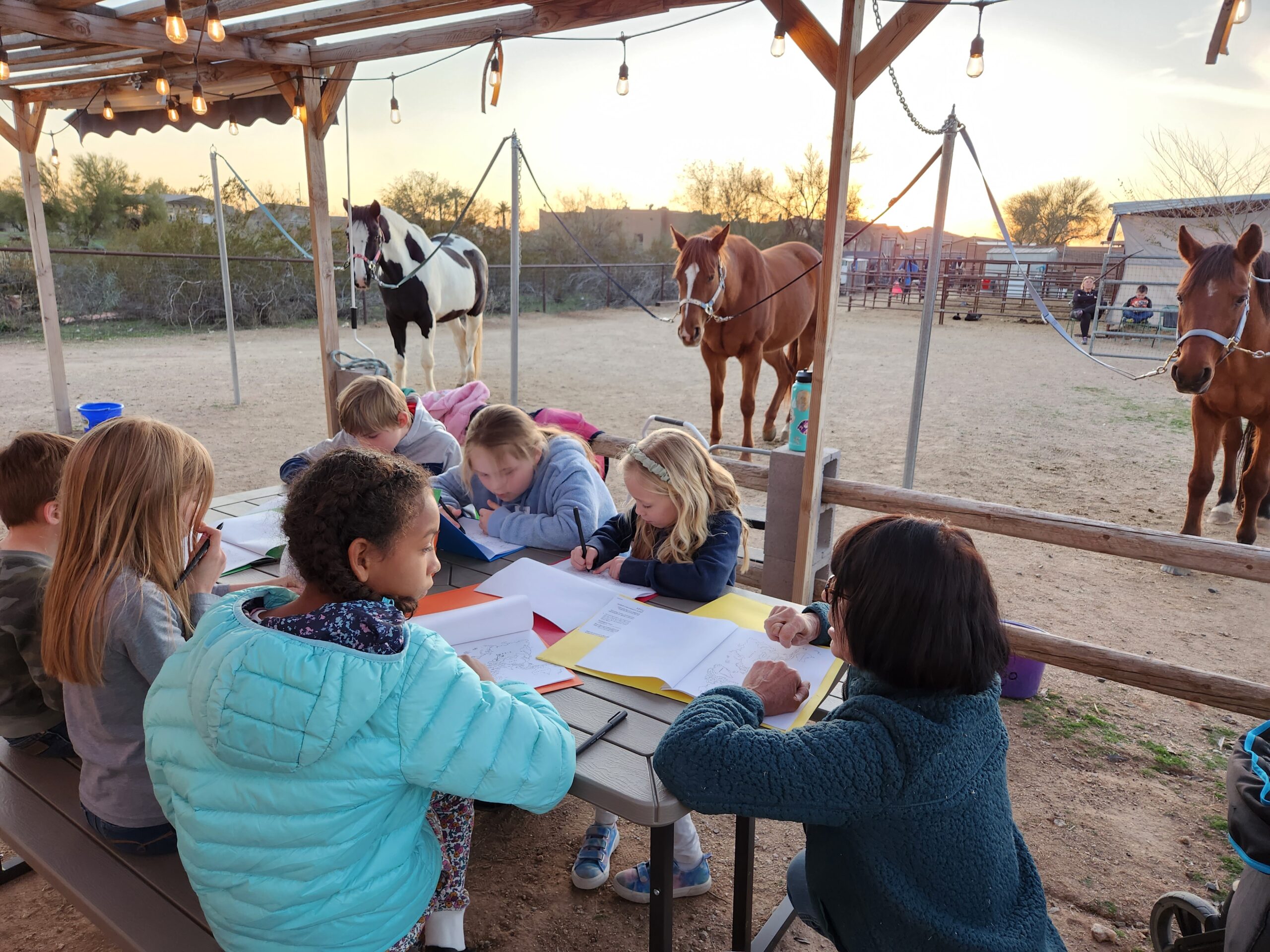
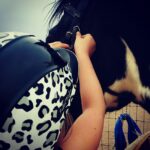
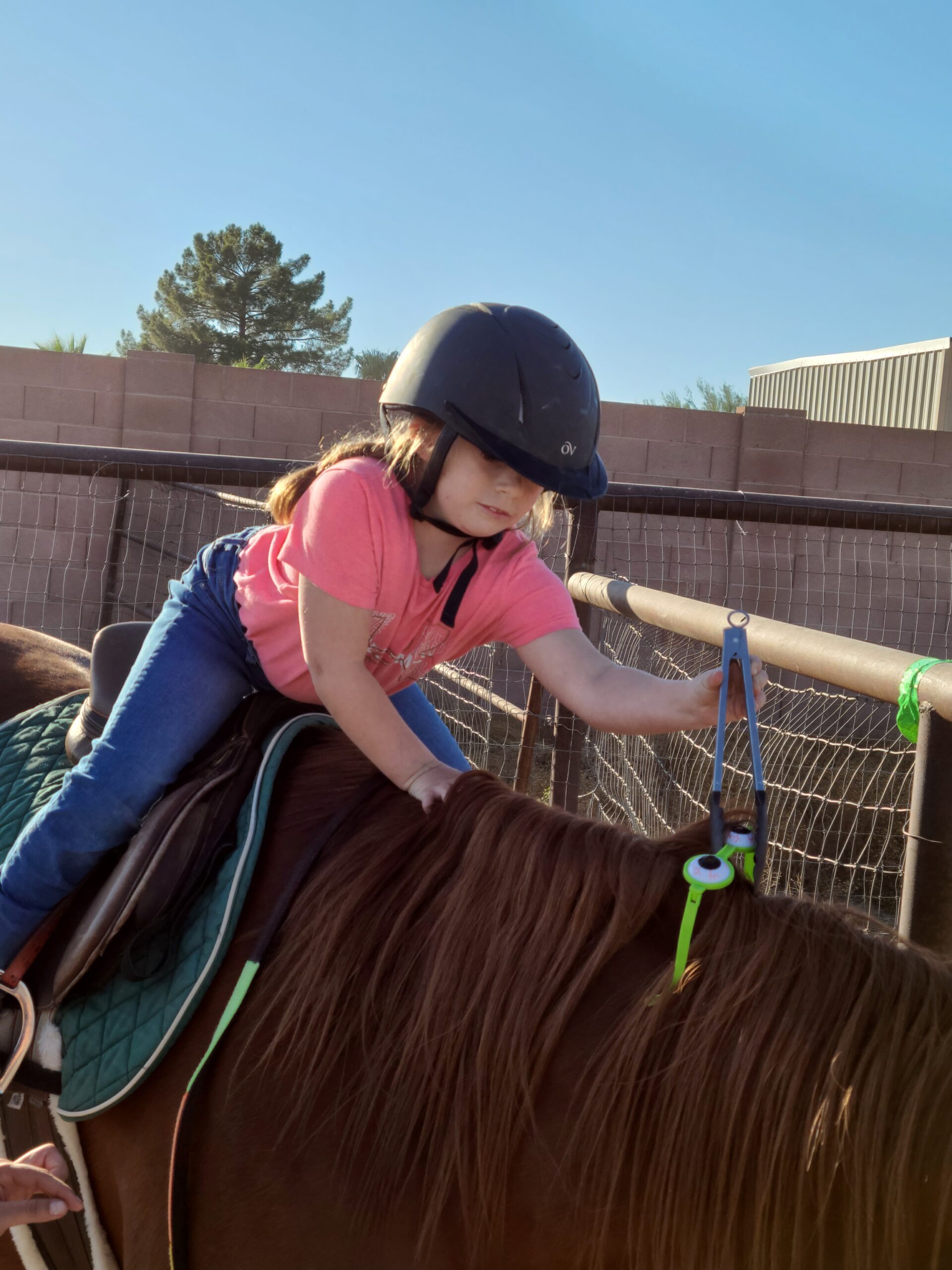
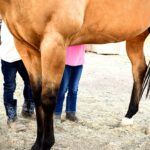
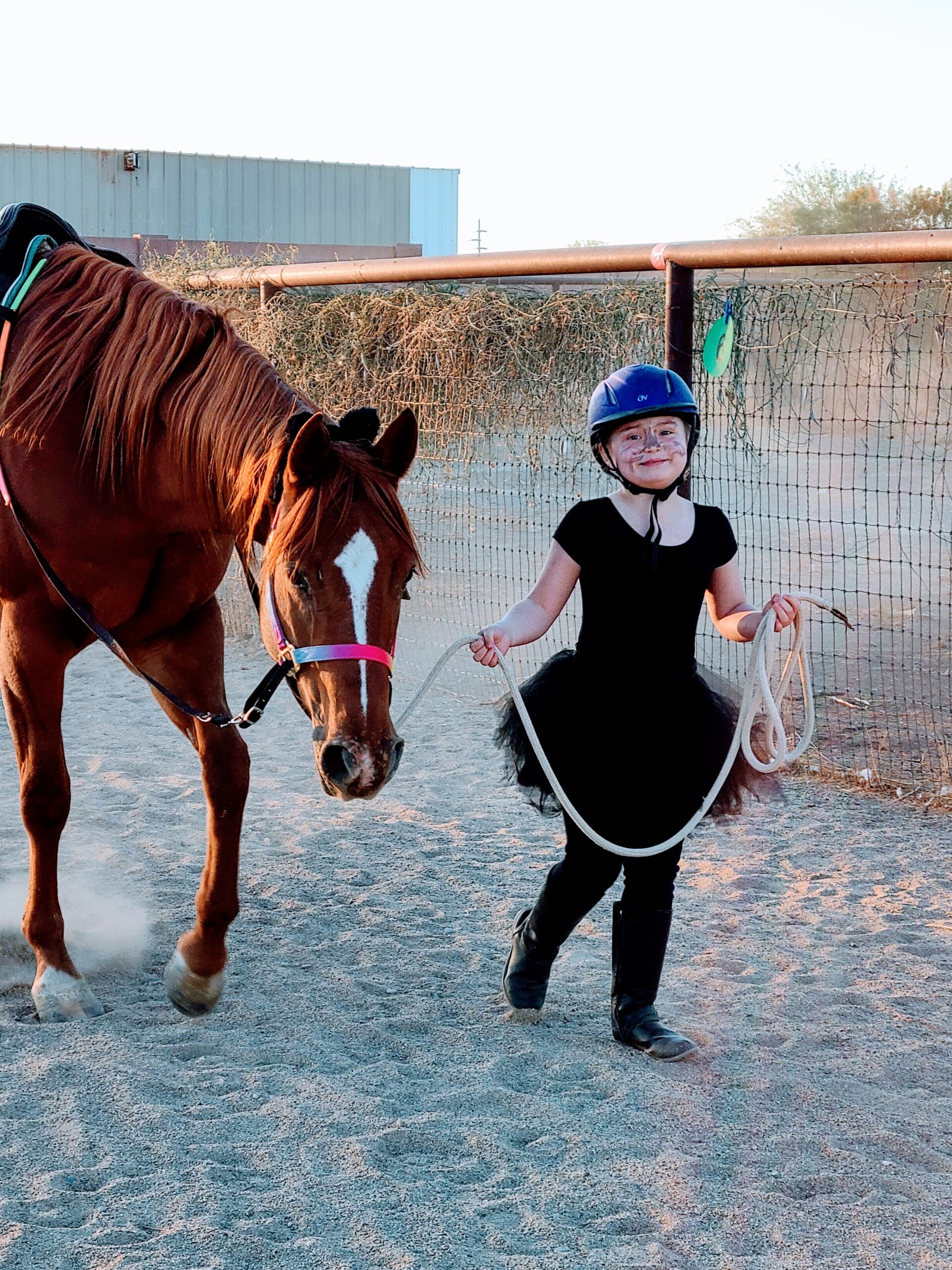
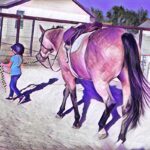
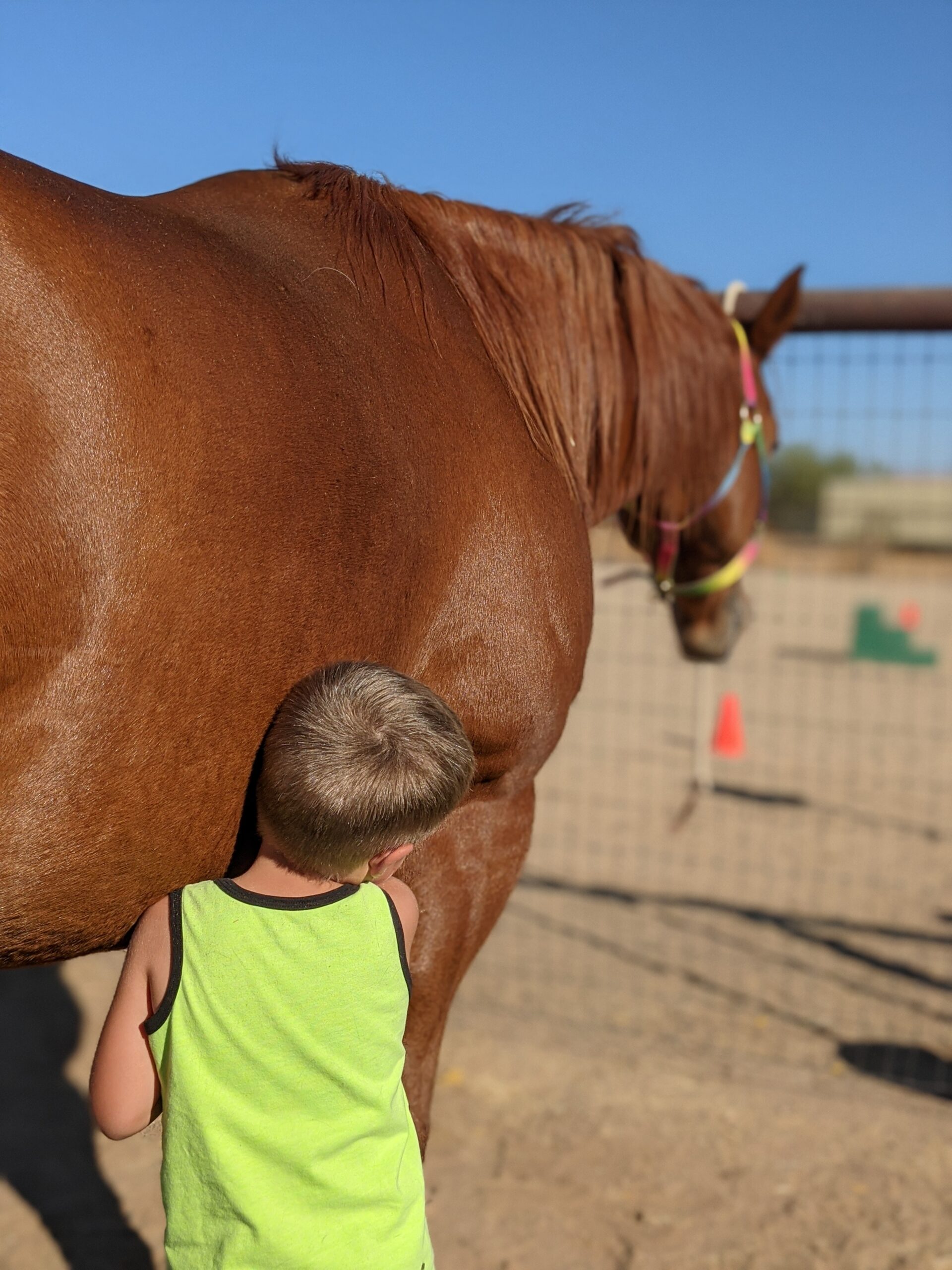
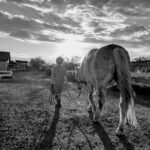
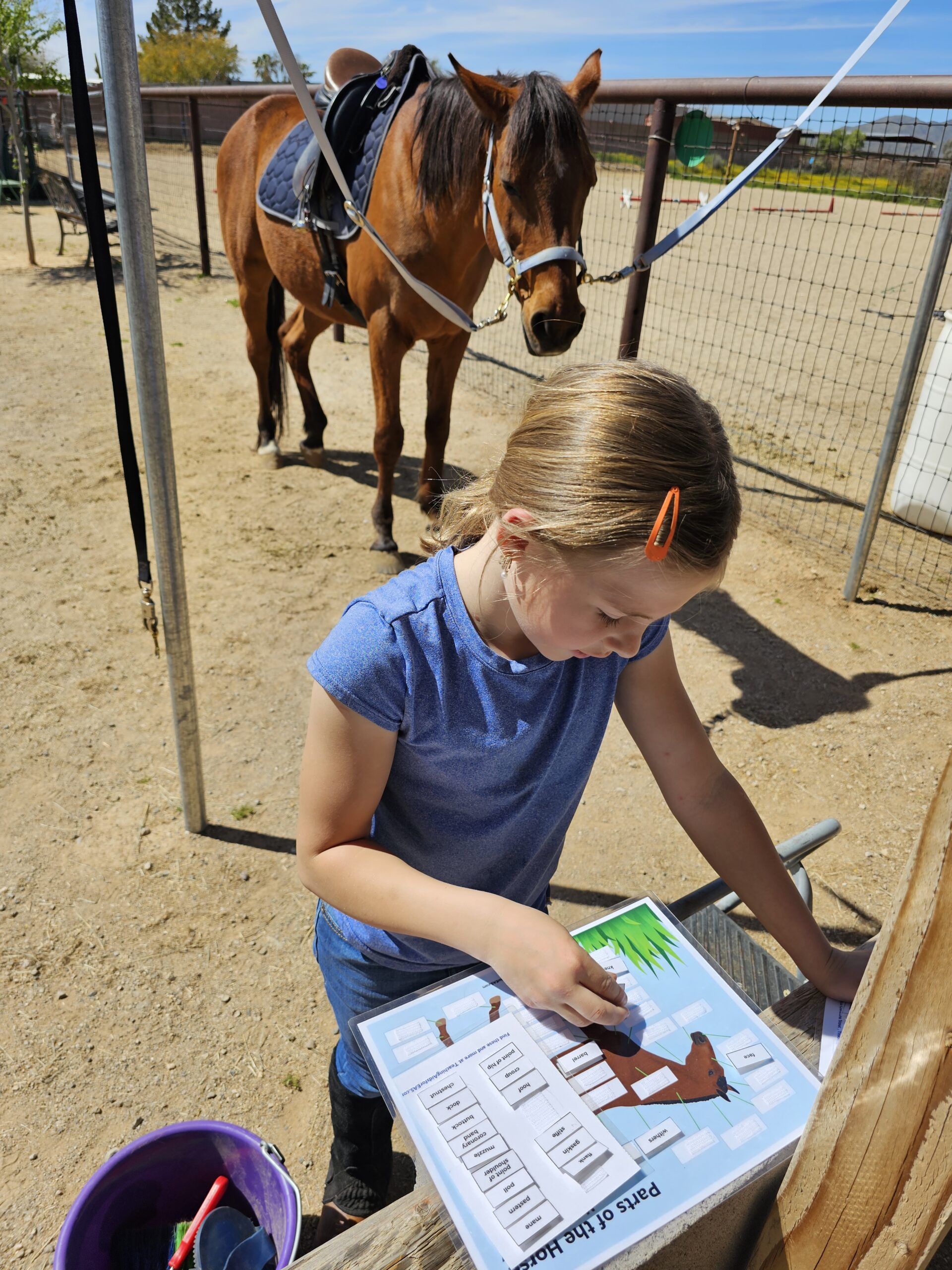
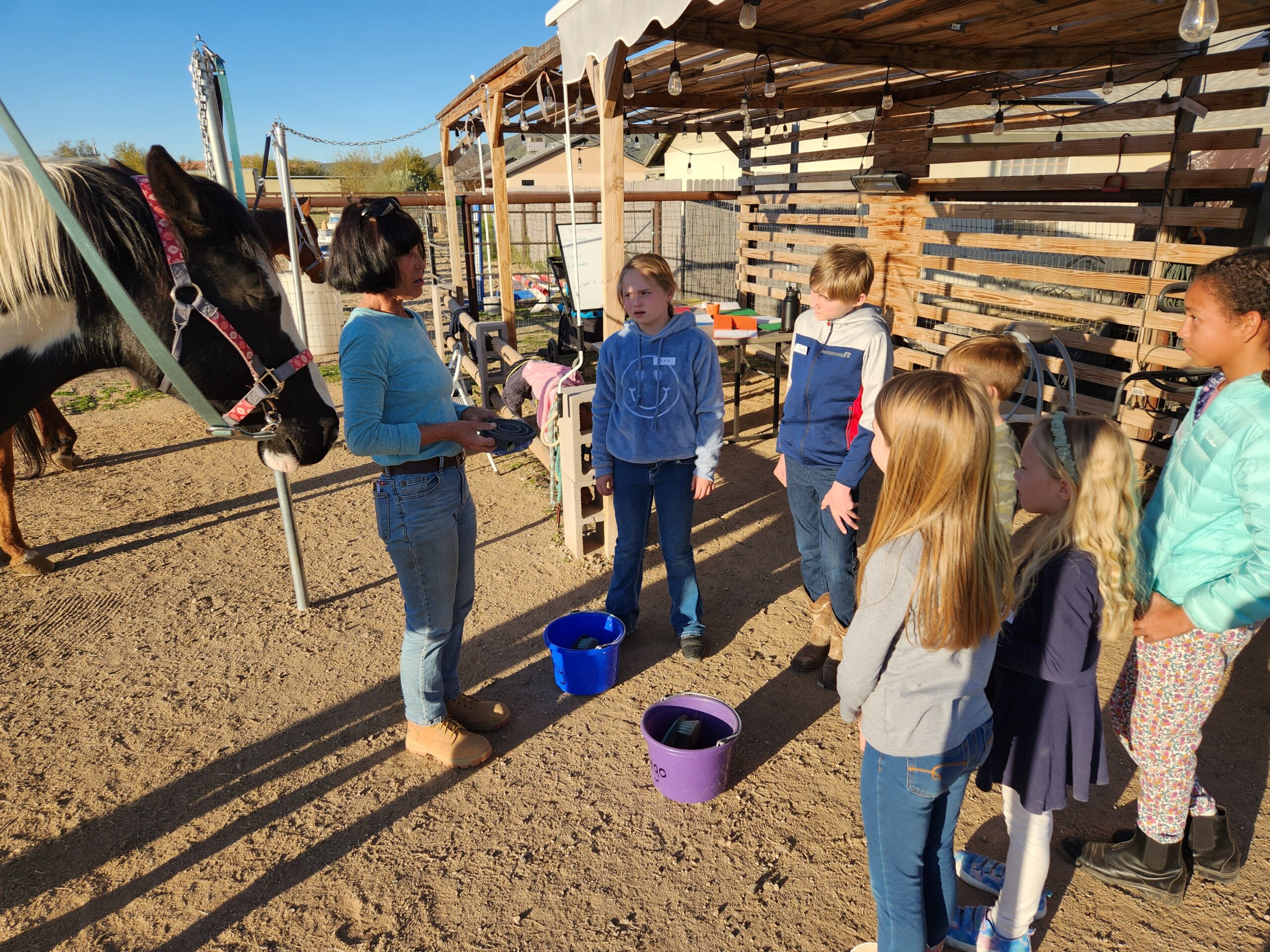
LESSON PRICING & TYPES (Updated August 2023)
- RIDING/HORSEMANSHIP LESSONS (Traditional and Adaptive/Therapeutic): Ages 4+
- May include groundwork, riding, grooming, tacking, longeing or other equine activiets at the discretion of the instructor.
- 60 minute PRIVATE lesson- $65 ($70 for ESA students) with lead instructor –Standard lesson length for students ages 6+ (4-5 year old students may qualify depending on mental and physical stamina and interest in the topic).
- 30 minute PRIVATE lesson- $45 ($50 for ESA students) with lead instructor- 30 minute lesson are only available to students who are not able to participate in a full 60 minute lesson due to age, physical stamina, attention span, etc.
- 60 minute SEMI-PRIVATE or GROUP lesson- $55 ($60 for ESA students) with lead instructor.- All students MUST begin in private riding/horsemanship lessons even if they have prior riding experience. Semi-private or group lessons are not offered until students are able to safely walk and trot independently. Semi-private lesson availability is also dependent on horses, tack, and available classmates.
- May include groundwork, riding, grooming, tacking, longeing or other equine activiets at the discretion of the instructor.
- EQUINE ASSISTED LEARNING: Ages 4+
- UNMOUNTED lesson type and may include grooming ,leading, tacking, longeing, equine behavior and psychology, etc. Includes additional focus on math, literacy, social skills, etc. that the student may be currently working on outside of equine activities.
- 30 minute PRIVATE lesson- $45 ($50 for ESA students) with lead instructor
- 30 minute SEMI-PRIVATE or GROUP lesson- $40 ($45 for ESA students) with lead instructor.
- 60 minute PRIVATE lesson- $65 ($70 for ESA students) with lead instructor
- 60 minute SEMI-PRIVATE or GROUP lesson- $55 ($60 for ESA students) with lead instructor.
- UNMOUNTED lesson type and may include grooming ,leading, tacking, longeing, equine behavior and psychology, etc. Includes additional focus on math, literacy, social skills, etc. that the student may be currently working on outside of equine activities.
- “HORSEMANSHIP CLUB” Series: Ages 6+
- Small group setting of 4-6 students. Lessons are a “series” that cover a variety of topics depending on that season’s theme!
- Class lengths are 60-90 minutes and typically $35-50/student/class
- Small group setting of 4-6 students. Lessons are a “series” that cover a variety of topics depending on that season’s theme!
FREQUENCY:
- Weekly Lessons– Students must commit to weekly lessons. We are unable to offer every-other-week lessons, lesson time share between siblings, etc. as there is a strict cap on number of individual students in Saebra’s program.
- Month by Month Commitment– Students are billed monthly for lessons and must give at least 15 days notification prior to the start of a new month if they wish to discontinue lessons.
- Holidays/Breaks– Hoof Falls & Footfalls breaks for major holiday weeks.
LESSON TYPES/TERMINOLOGY:
We teach more than “just horse skills” to EVERY student!
Please note that Saebra teaches to meet the needs of her students and meet them where they are at physically, cognitively, and emotionally!
The terms “Traditional Lessons“, “Adaptive/Therapeutic Lessons“, and/or “Equine Assisted Learning” aid in billing and helping to set goals and objectives for each student but do not impact the quality, safety, instruction techniques or learning tools that may appear in each lesson.
No matter the “type” of lesson the student may be technically enrolled in, not only are equine skills (grooming, leading, tacking, riding) practiced and honed but also personal/social and educational skills (critical thinking, problem solving, manners, team work, math, literacy, motor skills, spatial awareness and reasoning, etc.).
- Lessons are billed at the beginning of each month and must be paid in full by the end of the first lesson of each month.
- Payment options:
- Cash
- Check
- Zelle
- PayPal (3% online convenience fee added to invoice total)
- Credit Card or Bank Transfer (3% online convenience fee added to invoice total)
- Venmo
- ESA- Hoof Falls & Footfalls is an approved vendor and accepts the ESA debit card or invoice submissions through ClassWallet
- Lessons cancelled by students are not eligible for credit and unable to be rescheduled due to equine availability and schedule limitations. Lesson payment reserves your student’s spot in the program as there a limited spaces that are in high demand. This policy also helps keep pricing at a competitive, affordable rate and helps limit price increases program-wide despite increasing operating costs (hay, farrier, insurance, etc.). Students must notify instructor if they will be absent so we can plan accordingly. Failure to notify instructor may result in reevaluation of enrolment.
- Late arrival of a student does not alter ending time of a lesson as this will impact lesson times falling after the late arrival. The lesson will be considered “cancelled by student” if students arrive late and past the halfway mark of their scheduled lesson time.
- Excessive cancelation or late arrivals may be cause for reevaluation and if the HF&F lesson program and format is a good fit for the student. More than 1 no-call/no-show in a 6 month period and/or more than 2 late arrivals and/or cancellation with call in a month may cause may be cause for reevaluation of enrollment in the HF&F lesson program.
- Lessons cancelled by instructor will be rescheduled or given as a credit during the next month’s lesson invoice.
- Weather related: If a mounted lesson is unsafe due to weather the lesson may be adjusted to teach tack cleaning, equine management skills, etc. Non-mounted lessons are charged at the same rate as mounted lessons. Declining a non-mounted lesson offered by instructor due to weather is counted as an “cancelled by student”
- Instructor occasionally travels to teach clinics in the EAS industry. Advanced notice will be given to students and if your lesson day/time is impacted an effort to reschedule the lesson will be made.
- Holiday break weeks are not charged (see yearly lesson calendar)
- Hair– Hair must be pulled back into a low ponytail or braid during the entirety of the lesson. Hair that is not pulled back can get easily caught on tack or equipment and may result in injury. Loose hair may also obstruct the vision of the student and cause safety issues. HF&F is not responsible for providing items to secure hair.
- Pants– Long pants are required. Yoga and/or sweatpants material are highly discouraged as they can be slippery on a leather saddle. Jeans, khakis, riding pants/breeches, etc. are encouraged.
- Disallowed pants: Any pants with bling or buttons/snaps on front or back pockets. Riding is not permitted in this type of pant and a ground lesson will be given if disallowed pants are worn. This type of pant damages HF&F tack and equipment.
- Belts- Belts may be worn but MUST be smooth (no “bling” or other decorations that may scratch or damage saddles) and buckles must be worn in back. Students may be asked to remove belts if there is a risk of it damaging the saddle.
- Shirts– Must fully cover chest and abdomen. Overly big shirts are discouraged as it is difficult for the instructor to see the posture and alignment of student’s body through an extremely loose shirt. If a student prefers a looser shirt they may be asked to tuck in shirt. Lighter colored material is encouraged during warmer months.
- Shoes– Close toed shoes are required (closed toed= supportive sneaker, hiking boot, riding boot, etc. Converse, dress shoes, etc., are not acceptable “close toed” barn shoes.). Once students progress to trot work they are encouraged to wear appropriate riding boots AND half chaps. Note that footwear may have an impact on student progress while doing more complex/ involved riding skills. Please talk to instructor for more information.
- Half Chaps– Will be required for students once they have progressed to trot work. Check out the Ovation, TuffRider, or Horze brands. Students must wear half-chaps for trot lessons.
- Helmets– Helmets are required to be worn during mounted activities. Loaner helmets are available but students are encouraged to purchase their own if they plan on participating long-term in equine activities. Please see instructor for assistance in choosing sizing/brand before purchasing your own. Ovation is the brand of most loaners at HF&F.
- Jewelry– Dangly earrings may not be worn during lessons. It is highly recommended that stud earrings, necklaces, bracelets, etc. are not worn during lessons as they may break and or get caught on tack and equipment. Students may be asked to remove loose or bulky necklaces or bracelets for safety reasons.
Tip: Helmets, half-chaps, and boots make a great birthday or Christmas present!
About the Program
Instructor Saebra Pipoly (click for bio & certifications) offers an “inclusive” riding and horsemanship program for students ages 4+. This program focuses on instilling and reinforcing a solid foundation of groundwork and riding skills so students can progress in a safe, yet challenging manner.
What is an “inclusive” riding and horsemanship program? An inclusive program offers groundwork and mounted lessons that may be considered either “traditional” or “adaptive/therapeutic”. Lessons may be labeled as “traditional” or “adaptive/therapeutic” for billing purposes but what you see in the barn are equine activities where students are learning, growing, and thriving alongside their equine partners! Saebra takes great care in adapting lesson content and delivery, tack, assigned horses, etc. to match how each individual student learns and progresses.
